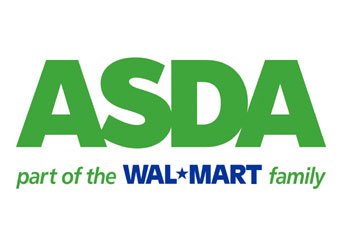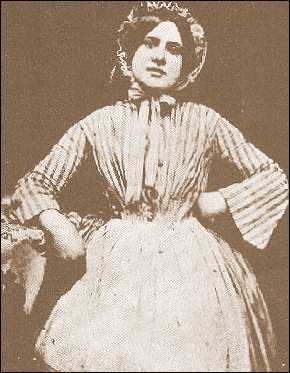Liberté, Egalité, Fraternité
The Liberal Democrats are conferring this weekend. A long time ago I used to attend Liberal Assemblies - they weren't conferences then but altogether unwieldier bodies where debates were taken seriously as the means of changing party policy and, through that, the country and the world.
I left the Liberals on a point of policy in the early 1980s. Since then, the Liberals have merged with the Social Democrats although there are still liberals within the new party. There seem to be other changes too. There's concern with security. When I joined, in my late teens, Assemblies were a place where I might find myself sitting next to a Member of Parliament, a peer or - even in those days - a celebrity supporter. It was remarkably easy to take part in eager discussions of policy though hard to get called to speak - there were so many keen to debate.
If I couldn't get called to speak at the main debates, I had a chance to express my views at a range of smaller fringe meetings. And I'd wander round the stalls run by a range of organisations and have conversations with the stall-holders. I remember some of the organisations who ran stalls and fringe meetings. The Campaign for Homosexual Equality was there. So were the National Council for Civil Liberties and the Child Poverty Action Group. I remember these in particular because they challenged some of my assumptions and told me facts I hadn't previously known. The Liberal Assembly was a place where people actually changed their minds.

These days there are still stalls and fringe meetings. But it's all much glossier. As the Conference Directory says, "The Liberal Democrat Conferences have become increasingly professional as the party has become increasingly professional." I'm suspicious of the term "professional." It can be used to mean simply that someone has particular qualifications or behaves in a responsible manner. But it can also be used to urge that loyalty to an employer is more important than telling the truth or questioning the principles of a business or institution.
In the case of the Liberal Democrat Conference, one of the things professional seems to mean is sponsorship. The conference is marketed at potential sponsors as "a fantastic opportunity for companies, societies and organisations to meet thousands of conference attendees face-to-face and increase their brand awareness." I don't know what they pay for these opportunities but I am anxious at some of the organisations paying for access to delegates during debates about national policy.

All fringe meetings to do with health are in an area sponsored by Humana, a profit-making company which works on "NHS commissioning" in the United Kingdom and in the lucrative field of health insurance in the United States. A meeting on "Culture: Today and Tomorrow" is sponsored by Camelot, who are also represented on the panel. Similarly, a fringe panel on "The Future for Home Ownership" is sponsored by Lloyds who have a place on the panel. The National Landlords Association, which includes "promoting ... members' interests to national and local government" among its aims is also represented.
Obviously organisations should be able to stimulate debates and talk to people who are politically active. I may feel doubts about The British Association for Shooting and Conservation who, with The Angling Trust, are sponsoring "The Rural Reception" at which senior MPs are speaking (and for which drinks and canapés are provided). However, campaigning organisations have engaged in dialogue with party politicians for a long time. It seems reasonable that unions and even newspapers should sponsor events or advertise in the conference programme. Politically active people are likely to join unions and read newspapers. I'm surprised that publicly-funded organisations and charities find money for sponsorship or think it a worthwhile cost - what do they get in return?

But as I look through the list of sponsors, I find some names that puzzle me: Dr Foster Intelligence, Ernst & Young, Bloomberg, Tesco, The Nuclear Industry Association. And why is Asda, wholly owned by the U.S. company Wal-Mart, sponsoring a fringe meeting on "Imagining New Britain: Forging a New National Identity"?
The current Liberal Democrats - just like Labour and the Conservatives - are taking money from big business. They are even advertising privileged access to Members of the British and European Parliament. Monday at the Conference is "Corporate Day" when "senior business leaders" can "meet and engage with "senior parliamentarians". Party leader Nick Clegg and Shadow Chancellor Vince Cable will be there - and there will be a reception at the end of the day. I don't suppose places are free. It sounds like cash for access to me.
 Parties may need to sell advertising and access in order to be taken seriously. And it's important to be taken seriously in politics - small parties and independents don't get the same publicity or access to public debates, as ex-Ambassador Craig Murray discovered in the recent Norwich North by-election. But all this sponsorship seems a long way from what I remember of Liberal Assemblies.
Parties may need to sell advertising and access in order to be taken seriously. And it's important to be taken seriously in politics - small parties and independents don't get the same publicity or access to public debates, as ex-Ambassador Craig Murray discovered in the recent Norwich North by-election. But all this sponsorship seems a long way from what I remember of Liberal Assemblies.Liberalism has been defined in many ways recently. Some commentators in the United States equate it with Marxism. In Europe it's often seen as a right-wing force in politics. For me it is neither.
Back in 1978, I heard Gerard Mulholland define the principles of Liberalism. He spoke as follows:

“The first principle of Liberalism … is freedom to live one’s life free from legal restraints, except those which stop your freedom from interfering with somebody else’s.
“The next principle is equality before the law and social and economic opportunity to enjoy life, liberty and the pursuit of happiness without discrimination against caste, creed, politics, race or sex.
“The third principle is the brotherhood of all people everywhere, with tolerance for the things we dislike, forbearance for the things we don’t understand and joyful celebration of the things we share.
“It all adds up to progress towards a fair and just society for the only race that matters – the human race.”

The principles he stated were rooted in 17th and 18th century debates on individual liberty. They were passed on like the copy of Milton's Areopagitica which was handed to every new president of the Liberal Party. The interpretation has developed over time but they still seem like good principles to me.
Parties which are dependent on the sponsorship and goodwill of wealthy organisations and big business are a long way from the ideals of liberalism. It doesn't sound much like democracy either.
Labels: business, Craig Murray, democracy, Gerard Mulholland, liberalism, liberty, money, party politics, power, sponsorship






